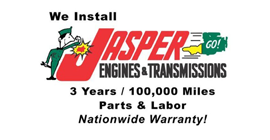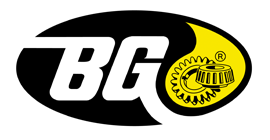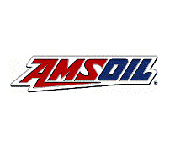AUTONET TV
Archive for June 2021I Had No Idea! (Four Things You Didn't Know About Vehicles)Posted June 27, 2021 9:16 AMBet you didn't know: Some of the earliest rearview mirrors were marketed as "Cop Spotters" so drivers would know when police were following them. Who wants a ticket, anyway? According to eBay Motors, Elmer Berger first patented a rearview mirror that was mounted on the front fenders, on the spare tire secured to the side of the car of at the top of the driver's door frame. About 80 percent of your vehicle is recyclable. So says The Balance. That means four-fifths of most vehicles can be recycled. Much of that recycling is done by automotive aftermarket recyclers. Between the U.S and Canada, they reclaim enough steel to produce 13 million new vehicles. The man who invented the first modern cruise control couldn't even drive a car because he was blind! His name, says Smithsonian.com, was Ralph Teetor. Blinded at a young age by a knife accident, Teetor was inspired to create a speed control by a couple of things. One, the U.S. imposed a mandatory 35 mph/55 kph during World War II to conserve fuel and tire rubber, and Teetor wanted drivers to go a safe and steady speed. Plus, a chauffeur who drove him around used to randomly slow down and speed up which irritated Teetor. So he invented a speed control to encourage drivers to drive at a more constant and safer speed. The first grooved tires were invented in 1904 by Continental. But that was a big improvement over the very first "tires" which were actually metal hoops that made riding in the first cars a pretty rough experience. The first rubber tires were solid rubber, not inflatable like today's tires. Things have come a long way. Modern tires are made with sophisticated rubber compounds that can deal with heat and cold. Plus their tread patterns help drivers get better traction on wet roads when it storms. Still, it's important to make sure yours have enough tread and are properly inflated for maximum safety and performance. Quite frankly, there's a lot we don't understand about the vehicles we drive. They're much more complicated than the old horse and buggy that preceded them. Leave your vehicle's maintenance and service to highly trained technicians who DO understand how to maintain, diagnose and repair today's modern, sophisticated vehicles. Hill's Auto Repair, Inc. Conventional or Synthetic? (Switching to Synthetic Oil)Posted June 20, 2021 7:42 AMIf you keep up on technology trends, then you may be intrigued about synthetic motor oil. It was introduced in the 1960s when Mobil came up with it. Mobil's oil was different from conventional motor oil because it was first broken down to its basic molecules. Then, Mobil removed additional impurities from crude oil and "tailored them to the demands of modern engines." Synthetic oil is becoming more popular now because of its advantages over conventional oil. It's more resistant to sludge forming in an engine. It is more efficient and protects engines better under temperature extremes. Because it allows drivers to go longer between oil changes, many feel it's more convenient. The downside is that synthetic oil is more expensive, but because it doesn't need changing as often, the cost can be pretty comparable in the long run. Those who drive high performance vehicles (think Audi, BMW, Mercedes) are already using synthetic oil if they're following their manufacturer's guidelines. Other manufacturers recommend a synthetic blend. So for those who are using conventional oil, you may want to consult your service advisor for some recommendations if you want to switch to synthetic. If you're the type who always waits until the last-minute or doesn't ever get in quite in time for the recommended oil change interval, the longer gap required between changes with synthetic oil may appeal to you. In some cases, you can go up to 15,000 miles/24,000 km between changes. If you drive in a very cold climate, synthetic oil can flow more easily at startup and may offer quicker engine protection. On the other hand, in hot climates, synthetic oil can resist heat breakdown better. Or you may be one of those drivers who have been getting along fine with conventional oil changes. Millions do. Just remember that changing your oil is considered the most important maintenance you can do on your vehicle, so make sure it's done at the right time and with the oil that best suits your driving needs. Hill's Auto Repair, Inc. The Right Oil for the Season (Engine Oil Viscosity)Posted June 13, 2021 8:47 AMAs the temperatures plunge, certain types of engine oil may not flow as easily as they did when it was warmer. Makes sense, doesn't it? Just like molasses gets thicker as the temperature goes down, engine oil does the same thing. So, maybe you're wondering if you have to change your oil as the seasons change so it's just the right thickness to lubricate your engine parts. How well engine oil flows is called its viscosity. There are different types of oil—some that have just one viscosity and others called "multigrade" oils. Here's the difference. A single viscosity oil will flow better when it's hot but not as well when it's cold. A multigrade oil is engineered so that its flow properties at cold temperatures are different than they are at warm temperatures. In other words, a multigrade oil can start out in colder temperatures acting like a thinner oil and then behave like a thicker oil when it's warm. That's a pretty cool trick and it's why multigrade engine oil is used in nearly all vehicles. Your vehicle's manufacturer has the correct viscosity of oil for your particular model included in the owner's manual. Another choice you have to make when it comes to engine oil is whether you use conventional oil, synthetic oil or a blend of the two. Synthetic oils have some advantages over conventional, such as resisting breakdown better and withstanding higher temperatures. Check with your service advisor to see which viscosity and type of oil is recommended for your vehicle. It's important that in cold weather, the oil flows through your engine at the right thickness so that parts are being properly lubricated. That will make sure you'll get good fuel economy and performance, no matter what the temperature is.
Cool Running (Water Pump)Posted June 6, 2021 9:09 AMYour vehicle is like you in a way. When it gets hot, it needs to be cooled down. And one of the key parts to keeping it cool is the water pump. Now, that's a bit of a misnomer. It IS a pump, but it's pumping coolant, not pure water. Cooling off your engine is vital since it builds up heat when it creates power by burning fuel. Your water pump acts as a way to recirculate that coolant. It goes through a series of tubes and hoses through the engine where it picks up heat, then is sent off to the radiator to get rid of that heat. Cooled off, the coolant is recycled through the water pump to start the journey again. The water pump works by taking mechanical power from the engine, usually from a belt. Obviously, that belt has to be in good condition and adjusted properly or else the water pump won't be able to do its job. Here are some things to look for that will signal problems with your water pump. If your heat gauge is erratic or showing a much higher than normal temperature, that could be a sign of trouble. Another is if you hear a whine under the hood. And if that gets louder when you go faster, get it checked right away. You may see steam coming out from under the hood or coolant may be leaking. These signs signal that it's time for you to have a technician check to see where the problem is. Some water pumps are powered by a timing belt. If your vehicle has that design and your timing belt is due for replacement, sometimes it's a good idea to replace the water pump too, even if it's working properly. That's because the labor to replace the timing belt can be expensive and it may be wise to proactively take care of the water pump while it's disassembled. Your service advisor will explain the options available and offer the best path to keeping your water pump doing its job. Your engine's life depends on it. Hill's Auto Repair, Inc. | ||
SearchArchiveSeptember 2011 (18)October 2011 (3) November 2011 (5) December 2011 (4) January 2012 (5) February 2012 (3) March 2012 (5) April 2012 (4) May 2012 (5) June 2012 (4) July 2012 (4) August 2012 (5) September 2012 (4) October 2012 (5) November 2012 (4) December 2012 (4) January 2013 (4) February 2013 (4) March 2013 (4) April 2013 (4) May 2013 (5) June 2013 (4) July 2013 (4) August 2013 (4) September 2013 (5) October 2013 (5) November 2013 (4) December 2013 (4) January 2014 (5) February 2014 (4) March 2014 (4) April 2014 (4) May 2014 (5) June 2014 (4) July 2014 (4) August 2014 (5) September 2014 (4) October 2014 (5) November 2014 (4) December 2014 (5) January 2015 (4) February 2015 (4) March 2015 (4) April 2015 (5) May 2015 (2) June 2015 (6) July 2015 (4) August 2015 (5) September 2015 (4) October 2015 (5) November 2015 (4) December 2015 (3) February 2016 (1) March 2016 (7) April 2016 (4) May 2016 (5) June 2016 (4) July 2016 (5) August 2016 (4) September 2016 (4) October 2016 (4) November 2016 (5) December 2016 (4) January 2017 (5) February 2017 (3) March 2017 (5) April 2017 (4) May 2017 (5) June 2017 (4) July 2017 (5) August 2017 (3) September 2017 (3) October 2017 (5) November 2017 (4) December 2017 (3) January 2018 (5) February 2018 (4) March 2018 (4) April 2018 (4) May 2018 (5) June 2018 (4) July 2018 (5) August 2018 (4) September 2018 (4) October 2018 (4) November 2018 (4) December 2018 (5) January 2019 (5) February 2019 (1) March 2019 (4) May 2019 (2) June 2019 (5) July 2019 (2) August 2019 (2) September 2019 (3) October 2019 (5) November 2019 (4) December 2019 (5) January 2020 (5) February 2020 (4) March 2020 (5) April 2020 (1) May 2020 (2) June 2020 (1) July 2020 (1) August 2020 (5) September 2020 (4) October 2020 (4) November 2020 (5) December 2020 (4) January 2021 (6) February 2021 (4) March 2021 (4) April 2021 (4) May 2021 (5) June 2021 (4) July 2021 (4) August 2021 (5) September 2021 (4) October 2021 (5) November 2021 (4) December 2021 (4) January 2022 (6) February 2022 (4) March 2022 (4) April 2022 (4) May 2022 (5) June 2022 (4) July 2022 (5) August 2022 (2) September 2022 (4) October 2022 (5) November 2022 (4) December 2022 (4) January 2023 (5) February 2023 (4) March 2023 (4) April 2023 (5) May 2023 (4) June 2023 (4) July 2023 (5) August 2023 (4) September 2023 (2) October 2023 (1) January 2024 (1) February 2024 (4) | CategoriesAir Conditioning (17)Alignment (16)Alternator (6)Auto Safety (6)Automotive News (8)Battery (20)Brake Service (4)Brakes (22)Cabin Air Filter (8)Check Engine Light (6)Cooling System (19)Customer Detective Work (1)Dashboard (3)Diagnostics (5)Diesel Maintenance (2)Differential Service (4)Drive Train (9)Emergency Items (1)Engine Air Filter (2)Exhaust (12)Fluids (17)Fuel Economy (10)Fuel Pump (1)Fuel Saving Tip: Slow Down (2)Fuel System (48)Headlamps (6)Inspection (10)Keys to a long lasting vehicle (4)Maintenance (59)Monitoring System (3)Oil Change (7)Older Vehicles (4)Parts (8)PCV Valve (2)Safe Driving (1)Safety (6)Serpentine Belt (6)Service Intervals (10)Service Standards (13)Shocks & Struts (11)Shocks and Struts (1)Spark Plugs (2)Steering (16)Suspension (3)Timing Belt (6)Tire Rotation and Balancing (4)Tires (10)Tires and Wheels (42)TPMS (3)Transfer Case Service (1)Transmission (11)Trip Inspection (4)Warranty (2)Water Pump (1)What Customers Should Know (81)Wheel Bearings (1)Windshield Wipers (9)Winter Prep (7)Winter Tires (1) | |










